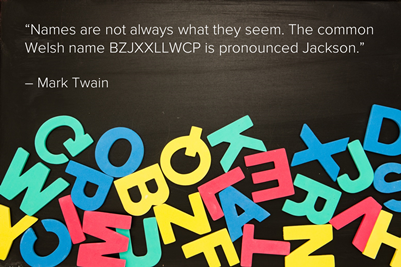 This post originally appeared on the Sales section of Inbound Hub. To read more content like this, subscribe to Sales.
This post originally appeared on the Sales section of Inbound Hub. To read more content like this, subscribe to Sales.
If you were trying to sell property in a run-down section of town, calling it a “construction zone” wouldn’t generate many sales. This word has so much negative baggage that it would be difficult to overcome the assumptions associated with it.
You would have better luck if you said your property was located in a “redevelopment zone” and gave examples of how buying property here is a chance to get a great deal and beat everyone else to the next big wave of development. The term “redevelopment zone” evokes a more neutral and perhaps even positive perspective — something you need as you market and sell your products and services.
If you have to explain what your name means when introducing yourself to a new prospect, then all it’s communicating is confusion. The best names are simple, intuitive, and precise. The right name can help you overcome your single, most difficult challenge: communicating what you do and who you do it best with.
The right name will help your sales team with:
Making customer and prospect education easier.
When you have the right name, people get what you do, and it makes sense immediately. If your name has nothing to do with what you’re offering, prospects need to work harder to understand why you or your products might be relevant to them.
Allowing you to charge a premium for your products that you might not otherwise get.
Names that sound valuable usually command a premium. “Express” mail sounds more expensive than “Priority,” which of course it is. While the service features are different, there is also a corresponding difference between the names.
Helping you connect with your customers and prospects on an emotional level.
If you were to list the ingredients in many kids’ cereals, most people would not be able to recognize the product, let alone get excited about it. But if you listed names such as Lucky Charms, Fruit Loops, and Cocoa Puffs, and paired them with their colorful boxes and mascots, the company image suddenly becomes vibrant and exciting.
Helping you to organize your product and service offerings into families or similar category names.
Car companies are a prime example of this technique. Many companies, such as BMW and Mercedes, name many of their vehicles using a numbering or lettering system depending on the model and size of the car.
Being linked to other brands that have strong, positive connotations with your target market.
Again, car companies are a prime example. A mustang draws images of a wild, powerful horse, unable to be tamed. This is the perfect match for the Ford Mustang, which thrives on power and freedom on the open road.
Helping you to build bonds more quickly by using names and words your prospect is familiar with.
People typically want something they can easily understand and identify with.
Of course, it’s rarely clear-cut which name is the best for your company or product. However, some of the qualities of a good, clear name include:
- Easy to say and spell.
- Easy to understand when it’s said aloud (e.g. over the phone).
- Memorable.
- As short as possible, in both total number of words and length of syllables.
- Unique — you can trademark it, register it as a company name, and secure the domain name.
- Marketable — it works in your literature and with your existing companies, products, or services.
- Able to outlast fads, market changes, and fickle buying behavior.
- Acceptable in other cultures and languages, especially if you plan to operate your company internationally.
There’s no doubt that names are vitally important to selling products and services — so important that it’s worth investing some time and energy into getting them right the first time, and making your future sales organization’s job easier as a result.
Enjoy this post? To read more content like this, subscribe to Sales.
![]()






